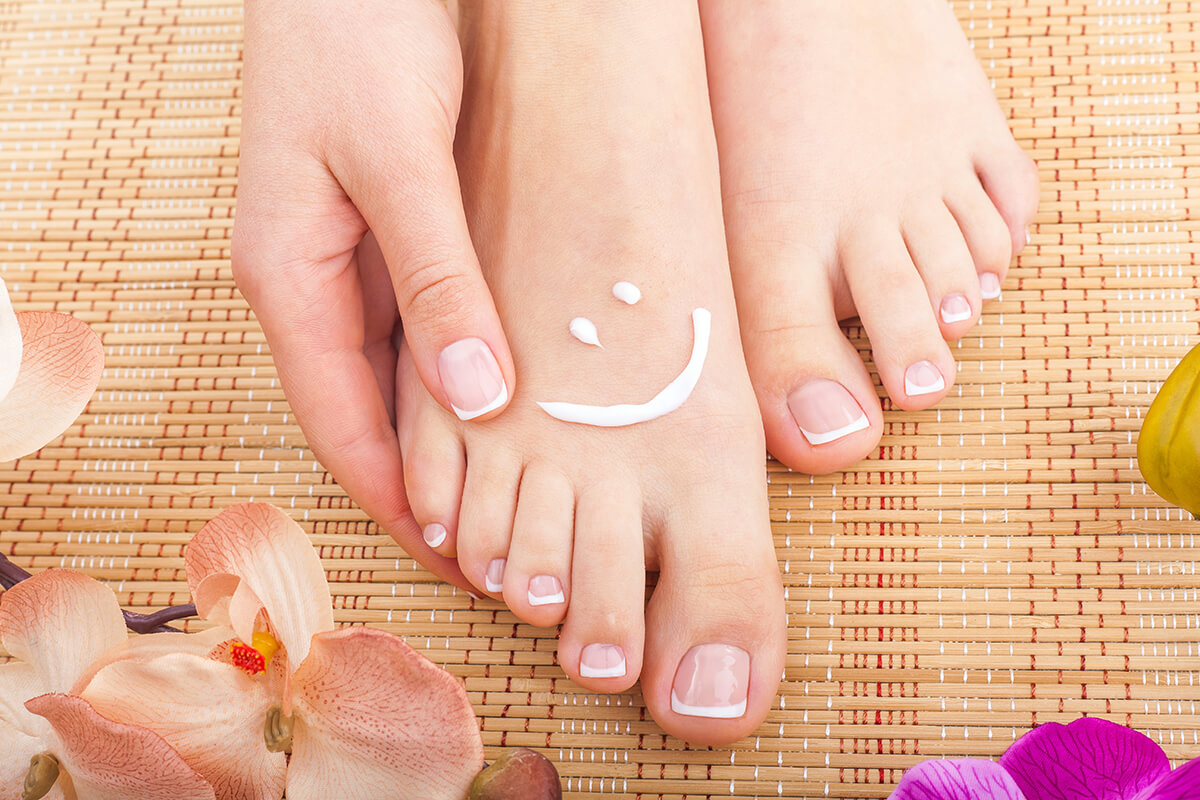Summer has come quickly and we are already seeing temperatures well into the 90s. Different seasons pose individual challenges for people with diabetes. Skin care is extremely important to help reduce the risk of dry, sun burned, itchy or infected skin during the summer months.
Tips for summer skin care:
- Sunscreen: It comes in lotion, gel, cream, spray, powder, stick and it really is a personal preference. The most important thing to remember is to use one that protects from UVA and UVB rays. Purchase a broad-spectrum water resistant sunscreen which will protect you from both kinds of rays. The SPF concentration is even trickier. You should use at least SPF 30 for adequate coverage. The key is to reapply every two hours and even more often if you are perspiring or in the water. Use one ounce or a shot glass full for protection and put it on about 30 minutes before you enter the sun. Most sun damage is from day to day activities, not the beach. Remember to include the back of the ears, the hair part as well as the lips and the top of the feet. Reapply sunscreen abundantly and often. Consider a mineral based product like zinc-oxide. This product does not penetrate the skin and is good for sensitive skin. Check sunscreen expiration date. Usually, it should not last from summer to summer.
- Sunburn: You should try to make sure that you are out of the sun between the hours of 10am-4pm for outdoor activities. Even a water aerobics class can increase your risk of burn since sand and water reflect sunlight. Consider a large brimmed hat and sun glasses that protect from UVA and UVB rays. It is possible to get sunburn on your eyelids and corneas and sun exposure does increase your risk of cataracts.
- Clothing: New clothing lines for outdoor activities are available with sun protective fabric. They are breathable and wick away perspiration to help decrease skin infections. Being on antibiotics can increase your risk of sun burn. Sunless tanning products do not protect you from the sun and tanning booths are dangerous to the skin.
- Foot Care: Summer foot care should be included since you will have an increased risk of athletes’ foot due to heat, sweating, and water. Wear thongs in community showers and pool shoes in the water. Remember to dry feet carefully and put powder between toes.
- Bug bites: If not treated and continually scratched, can cause infection. Have bug spray or a citronella candle when dining outside. You also need to be aware of poison ivy, poison oak, poison sumac if you are hiking, gardening or camping. Tick season is back and should put you on high alert for Lyme disease. Consider putting on repellents with DEET. Have calamine lotion and steroid ointments available.
- Nutrition: Hydration is important to the skin during the summer months. Plenty of water and decaffeinated drinks will help with dry skin from the sun and chlorine as well as from perspiration. Eat foods with anti-oxidants moderately such as apricots, berries, papaya, oranges, kale, spinach, tomatoes. Take Omega 3 supplements and eat fatty fish such as salmon. Nuts such as macadamias, almonds, and walnuts are also good fat for your skin and help keep it supple.
Enjoy your summer, stay hydrated, stay covered and stay active!
NOTE: Consult your doctor first to make sure my recommendations fit your special health needs.













Leave A Comment